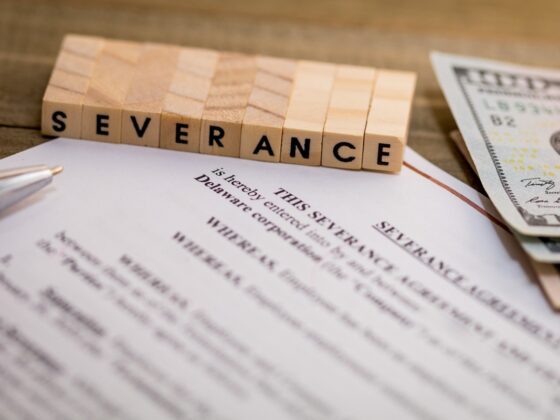In the ever-evolving job market, persistence is key. According to the Bureau of Labor Statistics, the average length of a job search now stands at 20.8 weeks—a duration that can feel like an eternity. Whether you’re a recent graduate or a seasoned professional, maintaining motivation during this extended period can be challenging, but it is essential for landing a preferred role.
In this month’s ACS blog, some of our ACS coaches share practical strategies to proactively utilize your time and prioritize self-care, ensuring you stay resilient and focused throughout your job search journey.
What strategies or practical techniques do you recommend for maintaining engagement and motivation during a long job search?
- Pace yourself. Don’t feel like you must send out 500 resumes the first week. Be thoughtful and intentional, even if it feels slow. Avoid giving yourself a tight “deadline” over which you have no control. Instead, think about what you can control to sustain yourself if the search takes longer than you think it will.
- Develop a job search marketing plan and keep it up to date. Don’t try to do everything on your own. Identify a support team (former co-workers, friends, family, Darden classmates/alums, ACS coach) and connect with them regularly to update them on your job search plan so that they can share their advice and support.
- Focus on inputs (both quality and quantity) and the outputs will come. Set daily goals for meaningful activities (e.g. networking contacts). You can gamify this by giving yourself more points for bigger tasks (e.g. 2 points for emailing a close contact, 30 for meeting with someone brand new). Reward yourself for meeting daily point goals with a short walk or some other positive activity. Having lots of discrete but meaningful tasks is less daunting and provides regular positive reinforcement. Also, prioritize your job search, especially if you are looking to leave your current role. Block out meaningful chunks of time, preferably when you are at your daily performance peak.
- Use an accountability partner. This can be a coach, friend or other job seeker. It’s probably not your significant other.
How can job seekers continue networking when they feel like they’ve exhausted all avenues?
- Impactful networking can happen where you least expect it. You never know who someone you know (neighbor, your kid’s friend’s parent, spin instructor, etc.) knows. The key is to be around people, let people help you and avoid isolation.
- At the end of every networking conversation, ask “is there anyone else you recommend that I speak with?” You’ll be surprised by how this one question will expand the number of people you connect with and who you may be introduced to—often the introductions are to your connection’s co-workers, but sometimes you may even be introduced to your connection’s neighbor or family member who works in your target company/industry.
- Build your own CRM system. This can be as simple as a spreadsheet that logs a person’s name, org, contact source, notes on last conversation and next steps. Include a date for the next follow up. Either add these to your calendar or review the spreadsheet on a weekly basis to create your contact list for that week. Don’t keep fishing in the same spot—you need to get to your network’s network. At the end of any call, ask who they know that you should speak with AND ask for an introduction.
- The best networking is done in the service of a robust targets list. Good targeting is the secret sauce of a successful job hunt—that means having a clear set of 10-30 firms you’ve identified where you think you want to work, regardless of whether you’ve seen a job opening yet. Depending on the size of the firm, network with anyone willing to talk to you about their experience there—look for connections through your other affinity groups, other Darden alumni, your undergrad school and former work colleagues. Anyone counts, and these so-called “weak ties” will help build bridges to other more relevant contacts and give you more inside information about your target firm.
What advice do you have for managing frustration and discouragement during a prolonged job search?
- Our Darden Career Connection Team (DCCT) can be a very helpful reminder that you are not alone. There are lots of incredibly talented people of all career stages that experience career setbacks. Share your frustrations and best practices for managing these frustrations with others in the same boat.
- Set realistic expectations. It’s not uncommon for a search to go on for months or more.
- Do not treat your job search as a “full time job.” Structure your week to give search activities your fullest attention during one limited block of time per day, say 4 hours. After that, leave the office and do other things! Lots of other activities will work to get you some balance and perspective: volunteer, pursue hobbies you’ve long put off, manage your health, find some gig work, take a part-time job (esp. near to the industry you want to work in), etc.
Do you suggest any self-care techniques or practices for maintaining motivation? What are some specific coping mechanisms, stress reduction techniques and ways to stay focused on the long-term goal?
- Yes, yes, yes! Like any job, take time for yourself. Reward your hard work at the job search with things that make you feel good. Exercise is incredibly important for maintaining energy, strength and positivity. When you feel healthy and strong, it will show.
- Coping mechanisms and stress reduction techniques can be very personal and could take many forms. Think back to other challenging times in your life and reflect on how you got through them. What works for you? Walks in the woods? Meditation? CrossFit? Reading? Music? Connecting with close friends? Whatever suits you, be intentional about making time for these activities.
- Walk away from your screens and take a walk in nature (or just around your neighborhood). Identify what’s important to you to remain physically and mentally healthy and block time on your calendar for these activities just as you would a networking call or interview.
- Find a way to cope with the inevitable negative self-talk that creeps up in a search. There are myriad books and resources to learn about mindfulness and meditation to become more resilient even as you cope with the uncertainty of a search. I do recommend daily journaling (20-30 minutes every day over a long period) as a way to write out the various ideas, observations, moods, frustrations and accumulated junk in the mind. Writing for only the audience of oneself helps us see our own challenges with fresh eyes.
As you navigate both the ups and downs of your career journey, lean on the strategies shared by our career coaches and be sure to leverage your Darden alumni benefits. Use the Alumni Directory to network and connect with former classmates and other alumni. Join our LinkedIn group and follow the hashtags #dardenhiringnetwork and #hireahoo. Consider attending upcoming alumni events in your area. Schedule a session with an ACS career coach and tap into our Job Search Toolkit. By proactively managing your time, prioritizing self-care and using Darden alumni resources, you’ll not only survive but thrive in pursuit of the next perfect opportunity.





